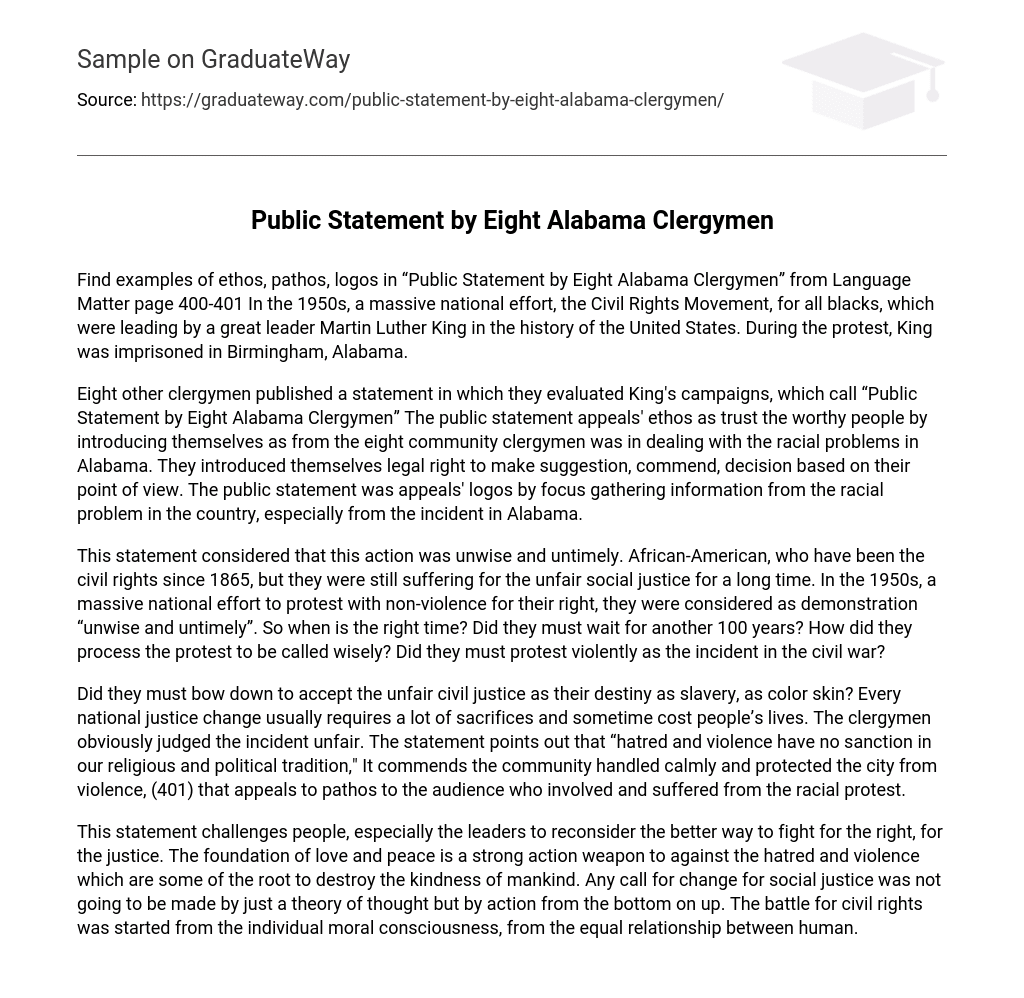In the 1950s, a massive national effort, the Civil Rights Movement, for all blacks, which were leading by a great leader Martin Luther King in the history of the United States. During the protest, King was imprisoned in Birmingham, Alabama.
Eight other clergymen published a statement in which they evaluated King’s campaigns, which call “Public Statement by Eight Alabama Clergymen” The public statement appeals’ ethos as trust the worthy people by introducing themselves as from the eight community clergymen was in dealing with the racial problems in Alabama. They introduced themselves legal right to make suggestion, commend, decision based on their point of view. The public statement was appeals’ logos by focus gathering information from the racial problem in the country, especially from the incident in Alabama.
This statement considered that this action was unwise and untimely. African-American, who have been the civil rights since 1865, but they were still suffering for the unfair social justice for a long time. In the 1950s, a massive national effort to protest with non-violence for their right, they were considered as demonstration “unwise and untimely”. So when is the right time? Did they must wait for another 100 years? How did they process the protest to be called wisely? Did they must protest violently as the incident in the civil war?
Did they must bow down to accept the unfair civil justice as their destiny as slavery, as color skin? Every national justice change usually requires a lot of sacrifices and sometime cost people’s lives. The clergymen obviously judged the incident unfair. The statement points out that “hatred and violence have no sanction in our religious and political tradition,” It commends the community handled calmly and protected the city from violence, (401) that appeals to pathos to the audience who involved and suffered from the racial protest.
This statement challenges people, especially the leaders to reconsider the better way to fight for the right, for the justice. The foundation of love and peace is a strong action weapon to against the hatred and violence which are some of the root to destroy the kindness of mankind. Any call for change for social justice was not going to be made by just a theory of thought but by action from the bottom on up. The battle for civil rights was started from the individual moral consciousness, from the equal relationship between human.





